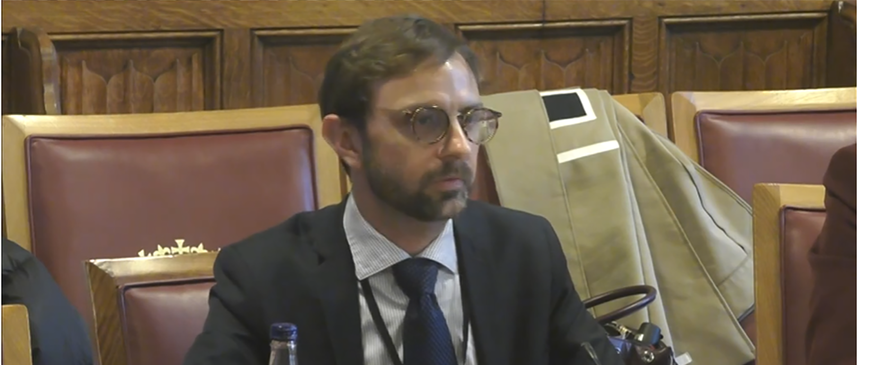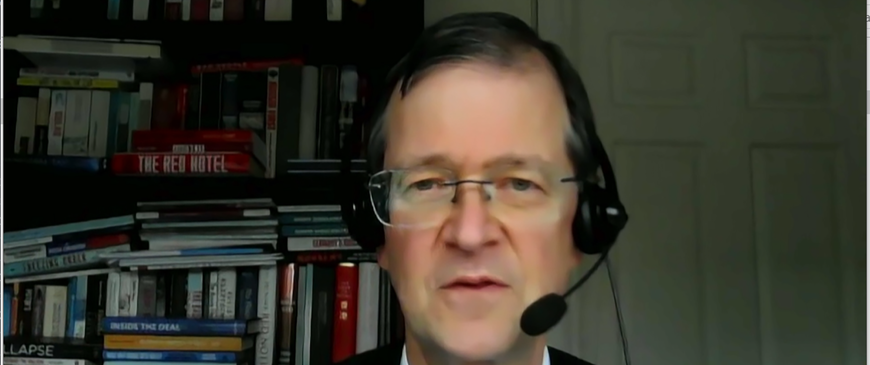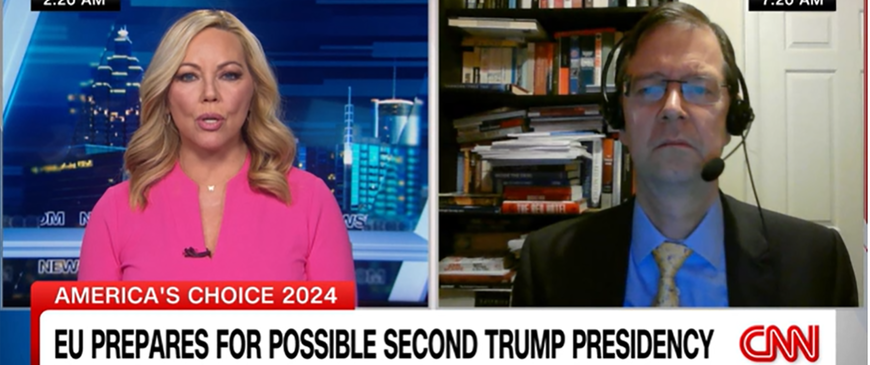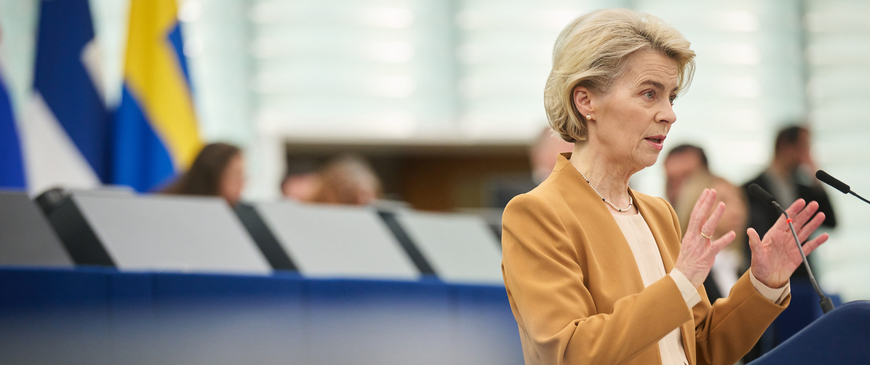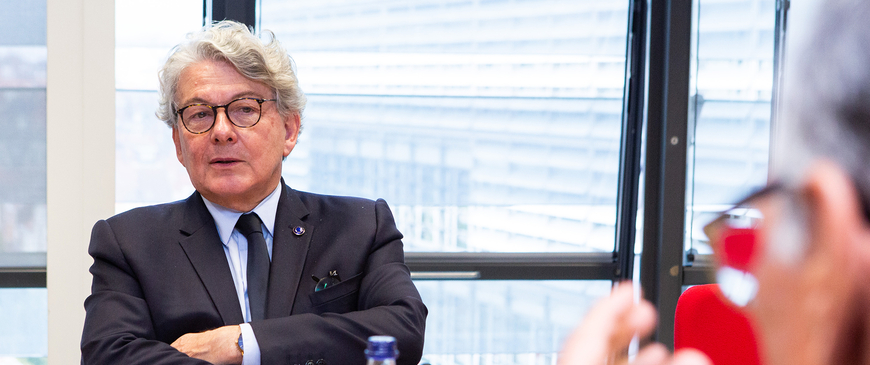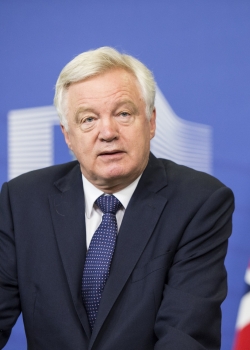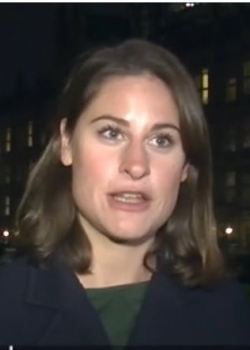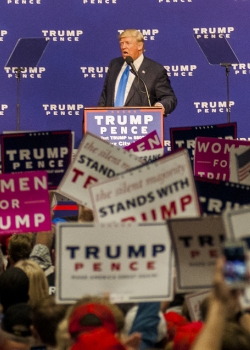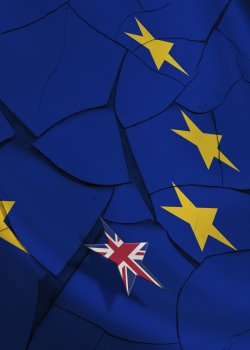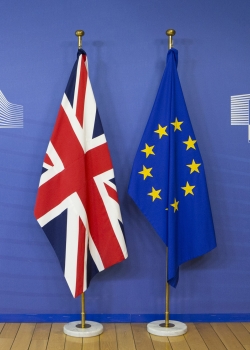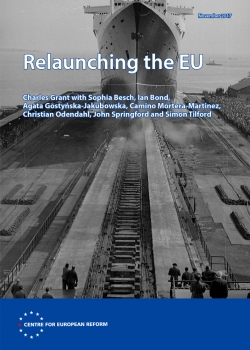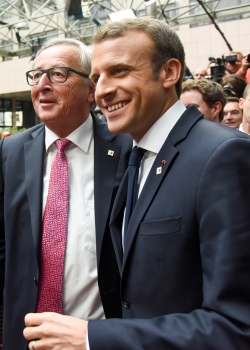Press
'Putting politics above prosperity' – wait, isn't that what the Brexiteers are doing?
17 November 2017
The Guardian
David Davis's ill-advised remark to an audience of German businessmen reveals an alarming ignorance about the way in which the EU is conducting negotiations.
Charting a new German foreign policy
16 November 2017
The Economist
France had wanted a smaller group; that Germany’s eastern neighbours are included is an important signal , says Sophia Besch, a security expert at the Centre for European Reform, a London-based think-tank. But for PESCO to succeed, much more is needed, including financial commitments which German voters may still be unwilling to accept.
Voice of America: EU signs historic defence pact as Brexit, Trump drive bloc to co-operate
14 November 2017
Three years later, Russia’s invasion of Crimea persuaded many European leaders of the need for closer defence.
Polska uległa presji i przyłączy się do projektu unijnej obrony wojskowej. „Zainicjowany przez Niemcy i Francję”
13 November 2017
Najwyzszy Czas
Unia próbowała tego wiele razy. Po raz pierwszy inicjatywa może zakończyć się sukcesem – mówiła Sophia Besch, ekspertka think tanku Centre for European Reform w Londynie.
Trump, Russia and Brexit revive 'Landmark' defence project for Europe
13 November 2017
Newsweek
Speaking about the comparisons between PESCO and the EU army project, Sophia Besch, research fellow at the Centre for European Reform, said the two are "not very related at all." "PESCO, if it suceeds, will have very little to do with that idea," she continued, noting that the two dozen ventures center around communication and empowering "the weak industrial base." "This is about granular, on-the-ground cooperation," Besch said, noting that Juncker's appeals for a wide European command was "counterproductive" to practical cooperation efforts.
Polska dołączy do unijnej obrony
12 November 2017
Rzeczpospolita
Po raz pierwszy inicjatywa może zakończyć się sukcesem – mówi Sophia Besch, ekspertka think tanku Centre for European Reform w Londynie. Państwa Europy Środkowowschodniej krytykowały od początku zawarty w PESCO cel budowy tzw. strategicznej autonomii UE, której wielkim zwolennikiem jest prezydent Macron. Uważam, że ta krytyka jest słuszna, bo ten zapis tworzy pole do zbyt wielu interpretacji – uważa Sophia Besch.
Deutsche Welle: Inside Europe: A call to relaunch and reform the European Union
10 November 2017
The European Union is currently grappling with a number of challenges from migration to Brexit. Amidst that backdrop, the Centre for European Reform or CER think-tank, has just issued a blue-print for change called ‘Relaunching the EU’. So what are its key proposals? Charles Grant is director of the CER.
Populismo: ¿cultura o economía?
10 November 2017
ESglobal
¿Son los factores económicos los culpables del ascenso del populismo o se trata de una reacción cultural? La respuesta es una mezcla de ambos.
Unia nie chce ukarać Wielkiej Brytanii – Agata Gostyńska-Jakubowska w rozmowie z UKpoliticsPL
09 November 2017
UK Politics Po Polsku
UKpoliticsPL: Jaki kierunek negocjacji z Wielką Brytanią przyjęła Unia Europejska?
How Brexit will unfold – Britain will get a deal, but it'll come at a price
09 November 2017
The Guardian
The UK will end up paying €50bn and accepting a hard Irish border: 10 predictions based on my conversations with people on both sides.
CER podcasts: Relaunching the EU
08 November 2017
The CER has launched a major new report ‘Relaunching the EU’. In this podcast mini-series, CER researchers explain some of the reports main recommendations.
Judy Asks: Is the Franco-German engine floundering?
08 November 2017
Carnegie Europe
It is premature to talk about the engine floundering. The hype around the couple will be tested once a new German government is in place.
Theresa May and the terrible, horrible, no good, very bad week
08 November 2017
The Atlantic
John Springford, the director of research at the London-based Centre for European Reform, told me that when it came to deciding whether or not to ask Patel for her resignation, May was without any good options. “If she sacks [Patel], she’s got a disgruntled Leaver on the backbench who might make it difficult for her in Brexit negotiations,” he said, noting that recent polling has shown public trust in May’s ability to negotiate a good Brexit deal has fallen to record lows. “If she doesn’t, she looks weak because prime ministers should use their authority to ensure that breaches of the ministerial code are punished.”
European leaders seem determined to remake the "global savings glut" on a massive scale
08 November 2017
Financial Times
Your correspondent recently had the chance to attend a stimulating conference hosted by the Centre for European Reform. One of the interesting ideas we discussed was the “re-nationalisation of fiscal policy”. In exchange for accepting German plans for a European Monetary Fund, which would only provide emergency lending after private creditors are forced to take large losses, elected governments would have more freedom to tax and spend. Treaty-based deficit rules would be replaced by market discipline.
Fast forward to two-speed Europe
07 November 2017
Politico
Macron's calls for a more flexible bloc will make it more attractive to new members.
Is NATO doing enough to pressure Russia over Ukraine?
07 November 2017
Deutsche Welle
The Centre for European Reform's Ian Bond is of a similar view and added a further warning. "People have lost focus on this and that's the most dangerous time," Bond told DW, comparing the situation with that in Georgia. "The world is not focusing on Georgia at all and that enables the Russians to keep moving forward the border fence a few meters at a time and a little more of Georgian territory is cut off every time and nobody does anything about it."
BBC Radio 4: Brexit a guide for the perplexed
06 November 2017
Agata Gostyńska-Jakubowska speaks to BBC Radio 4 about UK's sovereignty post-Brexit.
No one knows what Britain is anymore
05 November 2017
The New York Times
Confused and divided, Britain no longer has an agreed-upon national narrative, said Charles Grant, director of the Centre for European Reform. “In the 2012 Olympics we had one,” he said. “Global Britain, open Britain, generous Britain.” But now there is a competition between that narrative and the nativist one.Mr Grant, like others who have spent their careers watching British and European politics, predicts rough seas for Britain as it casts off nearly 45 years of intimate trade and legal ties with those annoying Europeans.“Everywhere I go,” he said, “people are asking me, ‘What’s wrong with your country?’ ”
The joke's over – how Boris Johnson is damaging Britain's global stature
04 November 2017
The New Statesman
Charles Grant, the Economist’s correspondent in Brussels at that time who now heads the Centre for European Reform, said that the Danish vote galvanised British Eurosceptics. “It showed they could win,” he told me. “Previously marginal figures like Teddy Taylor and Bill Cash awoke from their slumbers, and from then on British Euroscepticism had a tremendous amount of money and ideas and enthusiasm pumped into it.”
Migrant flow continues to cross the Mediterranean
03 November 2017
The National
The rescue [which saw almost 600 refugees picked up] coincided with the release of a report by a think-tank that examined the EU’s response to migrants crossing the Mediterranean, suggesting that the union was shifting from internal reforms to making deals with countries in Africa and Asia to try to halt the flow of refugees before they even leave their countries of origin or where they leave from to head to Europe. The report, authored by Luigi Scazzieri and John Springford for the Centre for European Reform, says that “the EU’s initial ad hoc response to the migration crisis [has] slowly being formalised into a strategy to curb migration by using foreign policy to prevent migrants from crossing the Mediterranean.

